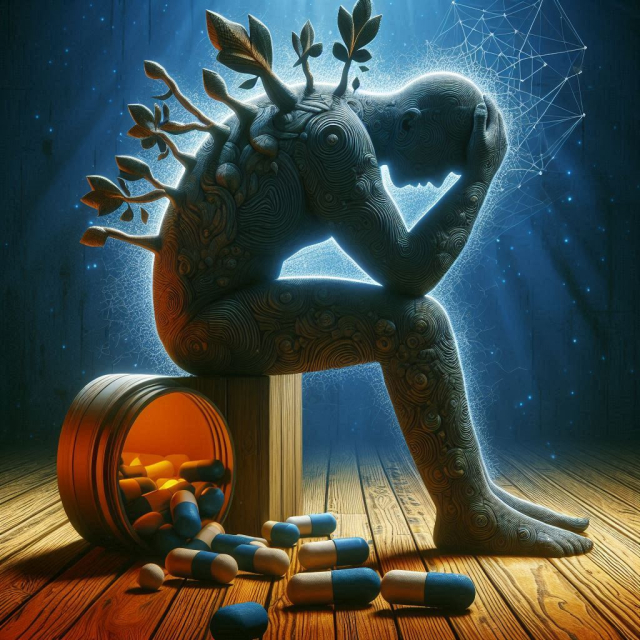In life, we all face problems and challenges. From personal and professional difficulties to emotional and health crises, problems are an inevitable part of the human experience. However, what really matters is how we deal with these problems. This article offers a comprehensive guide on how to effectively approach and manage problems, providing practical strategies and tips to overcome obstacles and emerge stronger.
Recognize and Accept the Problem.
The first step in dealing with any problem is to acknowledge and accept its existence. Many times, we tend to ignore or deny problems in the hope that they will go away on their own, but this rarely happens. Accepting the problem is crucial in order to begin working on a solution.
Strategies to Recognize and Accept the Problem.
- Honest Self-Assessment: Reflect on your situation and be honest with yourself about the nature and magnitude of the problem.
- Avoid Denial: Accept that the problem exists instead of trying to deny or minimize it.
- Keep an Open Mind: Be willing to accept that you need help or changes to solve the problem.
Identify the Root Cause.
Once you have accepted the problem, it is important to identify its root cause. Understanding the underlying causes will allow you to address the problem more effectively and prevent it from occurring again in the future.
Techniques to Identify the Root Cause.
- Cause and Effect Analysis: Use tools such as the Ishikawa diagram (fishbone diagram) to break down the possible causes of the problem.
- Digging Questions: Ask “why?” questions repeatedly to get to the root cause.
- Personal Reflection and Self-Analysis: Analyze your own actions, decisions, and behavior patterns that may have contributed to the problem.
Develop an Action Plan.
With the root cause identified, the next step is to develop an action plan. This plan should be specific, achievable, and geared toward effectively solving the problem.
Steps to Develop an Action Plan.
- Define Clear Objectives: Set clear and specific objectives that you want to achieve to solve the problem.
- Break it down into smaller tasks: Break down the plan into manageable tasks and set a timeline for completing them.
- Assign Responsibilities: If the problem involves other people, make sure everyone knows what their responsibilities are.
- Monitor Progress: Regularly track progress and adjust the plan as needed.
Seek Support and Advice.
Tackling large, complex problems can be overwhelming if you do it alone. Seeking support and advice can provide you with new perspectives and additional resources to solve the problem.
Sources of Support and Advice.
- Friends and Family: Rely on people close to you who can offer emotional support and practical advice.
- Professionals: Consider seeking help from professionals such as therapists, counselors, or coaches who have experience dealing with similar issues.
- Support Groups: Join support groups where you can share your experiences and learn from others who have faced similar problems.
Develop Resilience.
Resilience is the ability to bounce back from adversity and move forward. Developing resilience will help you cope better with problems and reduce the negative impact they can have on your life.
Strategies to Develop Resilience.
- Practice Self-Care: Maintain a self-care routine that includes exercise, healthy eating, and time to relax.
- Cultivate a Positive Mindset: Focus on the positive aspects of your life and learn to see problems as opportunities to grow.
- Develop Coping Skills: Learn and practice stress management techniques such as meditation, deep breathing, and mindfulness.
Evaluate and Adapt.
Your initial plan may not work out as you hoped. Regularly evaluating progress and being willing to adapt your approach is crucial to effectively overcoming problems.
How to Evaluate and Adapt Your Plan.
- Periodic Review: Set regular intervals to review progress and evaluate the effectiveness of your plan.
- Request Feedback: Ask trusted people or professionals for feedback on your progress and possible areas for improvement.
- Be Open to Change: Don't stick rigidly to your original plan. If something isn't working, be flexible and willing to try new strategies.
Learning from Experience.
Every problem you face is an opportunity to learn and grow. Reflect on what you have learned from each experience and how you can apply those lessons in the future.
Strategies for Learning from Experience.
- Keep a Journal: Write about your experiences, your feelings, and the lessons learned. This will help you process what you've been through and remember what you've learned.
- Regular Self-Assessment: Take time to assess your strengths and areas for improvement after you have faced a problem.
- Apply Lessons Learned: Use the lessons you have learned to handle future problems more effectively.
Maintaining Perspective.
Facing problems can be stressful and exhausting, but it's important to keep things in perspective. Remember that problems are a natural part of life and overcoming them makes you stronger and more capable.
How to Maintain Perspective.
- Practice Gratitude: Focus on the things you are grateful for to counteract stress and negativity.
- Take Breaks: Don't feel obligated to tackle everything right away. Take time to rest and recharge.
- Find Balance: Make sure you balance your time between solving problems and enjoying activities that bring you joy and satisfaction.
Coping effectively with problems requires a combination of self-assessment, planning, support, and resilience. By acknowledging and accepting the problem, identifying its root cause, developing an action plan, seeking support, and learning from the experience, you can overcome obstacles and emerge stronger. Maintaining perspective and practicing self-care are also essential to managing stress and maintaining a positive attitude. With dedication and the right strategies, it is possible to face any problem and emerge stronger and wiser.






